
Accompanying this is a smaller dodge ability that enables Geralt to nimbly weave between groups of enemy and a much more resilient block and counter system so Geralt can defend himself properly when dodging is not an option.
But what I like most about The Witcher 3's combat is that it treats swords like swords; light, fast, and above all sharp. When Geralt's blows strike home, your opponent reels backward in response. At best they'll lose a big chunk of health, at worst a limb, a head or even a half. There are also some pleasing authentic touches. Geralt can't block a blow from a poleaxe, for example, because it's a bloody poleaxe, while enemies carrying shields are very difficult to damage, requiring a different approach from brute force. My only quibble is at the higher levels the nuances of witcher combat such as signs, potions and dodges become less important, although I was playing on one of the easier difficulties.
All of this makes The Witcher 3 a fascinating and engrossing game. But we've yet to get to its strongest feature of all, it's approach to storytelling. The Witcher 3 uses its grand backdrop of war and politicking to tell a simple tale of a man seeking to reunite with his lost (adoptive) daughter. Geralt's grand tour across this war-torn land is all in aid of finding Ciri, his ward who he raised from childhood at the Witcher Fortress of Kaer Morhen. Though not strictly a Witcher, Ciri has abilities that make her even more powerful, and also a target of the spectral riders of the Wild Hunt, who she has been evading by teleporting between worlds for years. But the Hunt is closing in, so Ciri returns to the Geralt's world to seek a more permanent solution.
After the political focus of the second game, I expected the Witcher 3 to approach the same topic on a grander scale. In actual fact the Witcher 3 is a much more personal game, infused with emotion and heart. It's also extremely good at encouraging empathy with its characters. This is a game that will make you feel sorry for a man who deserves nothing but contempt, that deals with complex and sensitive subjects such as domestic abuse with delicacy and grace. There's one extended sequence that deals with a friend being hurt that, for me, was almost unbearable to sit through. The game knew it too, repeatedly giving me the opportunity to tap out, to give in.
I should emphasise that the Witcher 3 isn't all pain and misery. Far from it. It's often a funny and genuinely heartwarming game. Regarding the former, the paternal element of Geralt's character allows CD Projekt to bring out much more of the emotion that has always been bubbling beneath his grizzled surface. Thanks to some stunning facial animation, it's conveyed with wonderful subtlety too. It's amazing how much information Geralt can communicate with a slight smirk, a raised eyebrow, a heave of his scarred shoulders.
All of the characters are lent this attention to detail. Not just the central cast like Ciri, warm and optimistic and determined, or Yennefer, abrasive, impatient and the polar opposite of Geralt. Every peasant you accept a contract from, every merchant you barter with, you get a sense of their character within just a couple of lines of dialogue. They might be cold, they might be friendly, they might be earnest, they might be deceptive, they might be funny, they might be stupid. Yet no matter what they are, they are never boring.
There are some problems. Of course there are. You can't create a 200 hour game without overlooking a few rough edges. The game feels great when out in the open, but in more confined spaces it controls quite clumsily. Geralt has difficulty navigating crowds, while his horse Roach tends to get stuck in villages or dense woodland. The worst movement issue is swimming underwater, which is more like swimming under glue. Oh, and exploring the isles of Skellige is somewhat spoiled by the hordes of Sirens prowling about. They're the Witcher 3 equivalent of Morrowind's Cliff Racers, no fun to fight and abundant in number.
Lastly, while The Witcher is generally very good at representing women, having better written female characters than 90% of other games, it does occasionally revert toward the tawdriness of the first game. In particular, a lot of Novigrad's women appear to be having serious problems with their blouses. I can only assume the war has caused severe button shortage. Also, while racism has been a major theme of the Witcher since the first game, literally every person you come across, whether elf, dwarf, or human, is white-skinned. I don't think this is malicious, given CDProjekt's nuanced portrayal of the treatment of non-human races, but it is a pretty big oversight on their part.
But these flaws don't even come close to undermining CD Projekt's achievements in the Witcher 3. It's the culmination of a lengthy improvement process over three games. The Witcher proved they could make an interesting game, and the Witcher II proved they could make an intelligent and entertaining game. The Witcher 3 does something entirely different. It relieves CD Projekt of the burden of proof, and places it squarely on the shoulders of every other RPG developer working in the industry today. That's how good it is. Consider the bar officially raised.
But what I like most about The Witcher 3's combat is that it treats swords like swords; light, fast, and above all sharp. When Geralt's blows strike home, your opponent reels backward in response. At best they'll lose a big chunk of health, at worst a limb, a head or even a half. There are also some pleasing authentic touches. Geralt can't block a blow from a poleaxe, for example, because it's a bloody poleaxe, while enemies carrying shields are very difficult to damage, requiring a different approach from brute force. My only quibble is at the higher levels the nuances of witcher combat such as signs, potions and dodges become less important, although I was playing on one of the easier difficulties.
All of this makes The Witcher 3 a fascinating and engrossing game. But we've yet to get to its strongest feature of all, it's approach to storytelling. The Witcher 3 uses its grand backdrop of war and politicking to tell a simple tale of a man seeking to reunite with his lost (adoptive) daughter. Geralt's grand tour across this war-torn land is all in aid of finding Ciri, his ward who he raised from childhood at the Witcher Fortress of Kaer Morhen. Though not strictly a Witcher, Ciri has abilities that make her even more powerful, and also a target of the spectral riders of the Wild Hunt, who she has been evading by teleporting between worlds for years. But the Hunt is closing in, so Ciri returns to the Geralt's world to seek a more permanent solution.
After the political focus of the second game, I expected the Witcher 3 to approach the same topic on a grander scale. In actual fact the Witcher 3 is a much more personal game, infused with emotion and heart. It's also extremely good at encouraging empathy with its characters. This is a game that will make you feel sorry for a man who deserves nothing but contempt, that deals with complex and sensitive subjects such as domestic abuse with delicacy and grace. There's one extended sequence that deals with a friend being hurt that, for me, was almost unbearable to sit through. The game knew it too, repeatedly giving me the opportunity to tap out, to give in.
I should emphasise that the Witcher 3 isn't all pain and misery. Far from it. It's often a funny and genuinely heartwarming game. Regarding the former, the paternal element of Geralt's character allows CD Projekt to bring out much more of the emotion that has always been bubbling beneath his grizzled surface. Thanks to some stunning facial animation, it's conveyed with wonderful subtlety too. It's amazing how much information Geralt can communicate with a slight smirk, a raised eyebrow, a heave of his scarred shoulders.
All of the characters are lent this attention to detail. Not just the central cast like Ciri, warm and optimistic and determined, or Yennefer, abrasive, impatient and the polar opposite of Geralt. Every peasant you accept a contract from, every merchant you barter with, you get a sense of their character within just a couple of lines of dialogue. They might be cold, they might be friendly, they might be earnest, they might be deceptive, they might be funny, they might be stupid. Yet no matter what they are, they are never boring.
There are some problems. Of course there are. You can't create a 200 hour game without overlooking a few rough edges. The game feels great when out in the open, but in more confined spaces it controls quite clumsily. Geralt has difficulty navigating crowds, while his horse Roach tends to get stuck in villages or dense woodland. The worst movement issue is swimming underwater, which is more like swimming under glue. Oh, and exploring the isles of Skellige is somewhat spoiled by the hordes of Sirens prowling about. They're the Witcher 3 equivalent of Morrowind's Cliff Racers, no fun to fight and abundant in number.
Lastly, while The Witcher is generally very good at representing women, having better written female characters than 90% of other games, it does occasionally revert toward the tawdriness of the first game. In particular, a lot of Novigrad's women appear to be having serious problems with their blouses. I can only assume the war has caused severe button shortage. Also, while racism has been a major theme of the Witcher since the first game, literally every person you come across, whether elf, dwarf, or human, is white-skinned. I don't think this is malicious, given CDProjekt's nuanced portrayal of the treatment of non-human races, but it is a pretty big oversight on their part.
But these flaws don't even come close to undermining CD Projekt's achievements in the Witcher 3. It's the culmination of a lengthy improvement process over three games. The Witcher proved they could make an interesting game, and the Witcher II proved they could make an intelligent and entertaining game. The Witcher 3 does something entirely different. It relieves CD Projekt of the burden of proof, and places it squarely on the shoulders of every other RPG developer working in the industry today. That's how good it is. Consider the bar officially raised.
-
Overall95 / 100


MSI MPG Velox 100R Chassis Review
October 14 2021 | 15:04

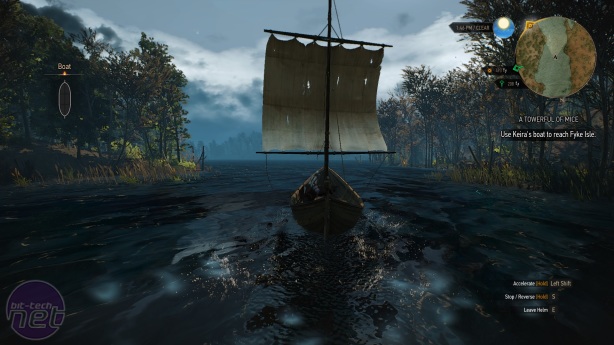
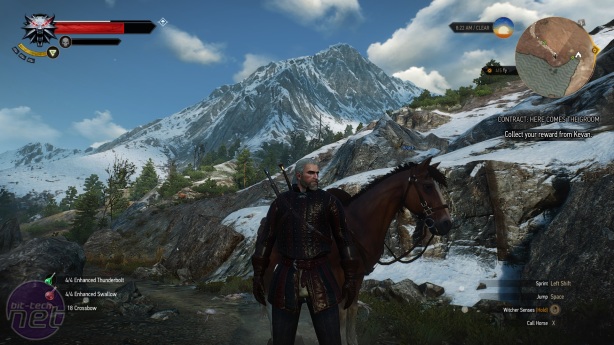
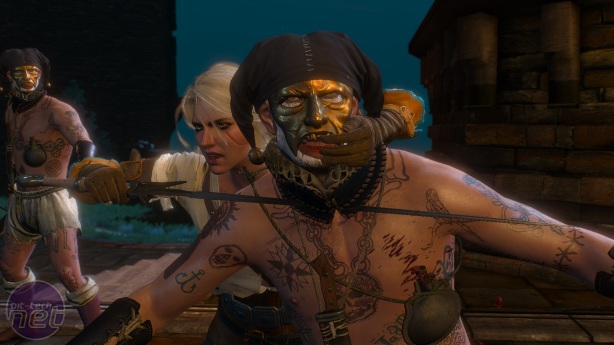
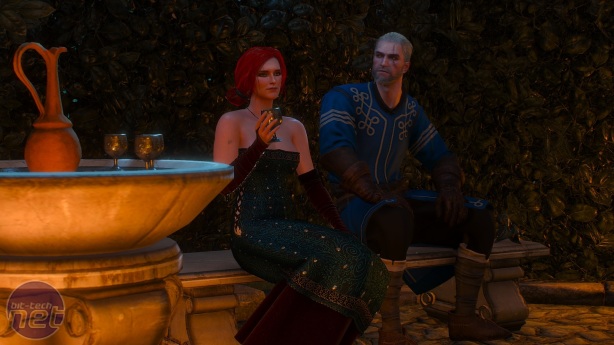
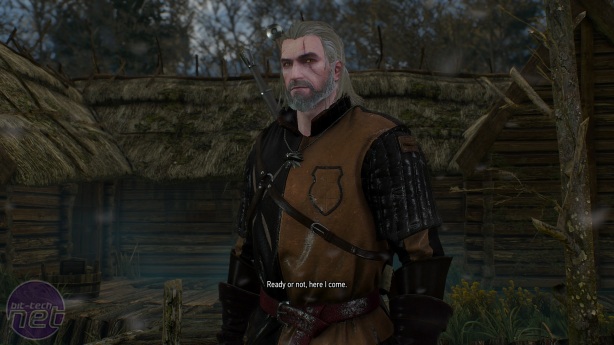
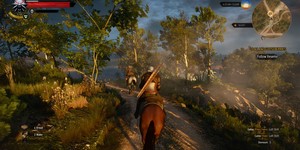
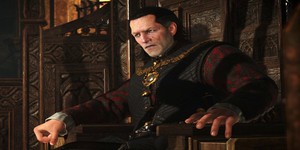






Want to comment? Please log in.